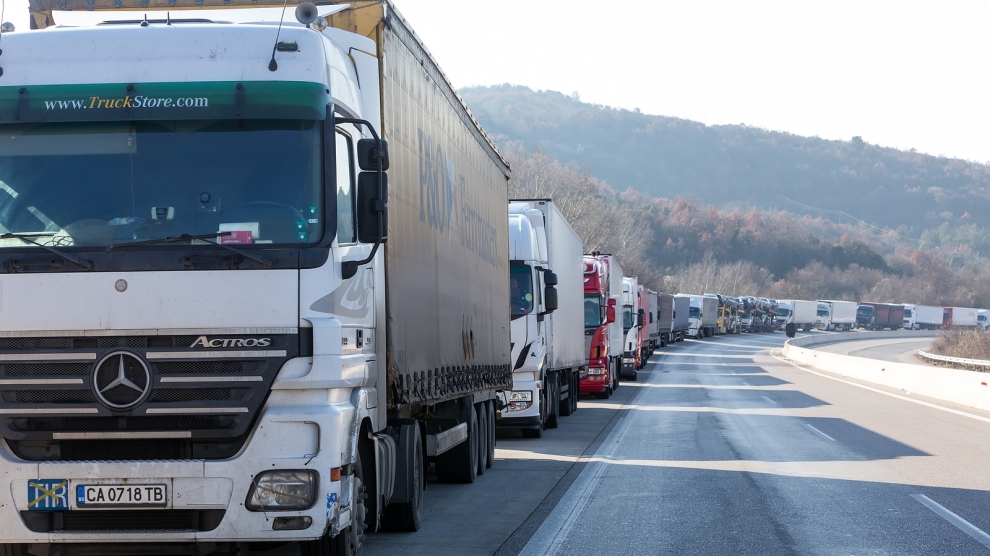Attention will now shift to applying further pressure on Vienna to fully lift its veto on Bulgaria and Romania’s Schengen accession. Any movement, however, is unlikely until after Austria holds parliamentary elections in September.
Ali Demirci has been driving trucks across Europe for more than two decades, delivering primarily Turkish-made textiles to distributors and retailers across the continent. Never, however, he tells Emerging Europe in broken English, has the queue to cross the Turkish-Bulgarian border been as long as it is today.
“Sometimes I cross in five hours, sometimes in five days,” he says. “Then when I get to the [Bulgarian-] Romanian border I do it all again. And then at the [Romanian-] Hungarian border. I just drive from one long queue to another.”
- ‘Air Schengen’ provokes very different responses in Bucharest and Sofia
- Growth in Central and Eastern Europe will strengthen in 2024
- The EU has been very good for emerging Europe
On March 31, Bulgaria, along with Romania, will partially join the European Union’s passport and border-free Schengen zone—but only for air and sea traffic. Land borders will remain. The shabby compromise, agreed at the end of last year, came after Austria—which had previously vetoed Schengen membership for the two countries—dropped some of its opposition.
However, Austria’s partial climbdown—and a promise to negotiate full Schengen membership in the second half of 2024—came at a cost. Specifically, Austria demanded a tightening of border controls at Bulgaria and Romania’s borders, and an increased presence for Frontex officers to protect these borders from irregular migrant surges.
The impact on traffic flows across these borders has, predictably, been negative. Last month, the International Road Transport Union (IRU) said that it was “strongly concerned” that the additional border control measures introduced by Bulgaria and Romania to fight irregular migration were having disproportionately negative consequences on goods transport and trade.
In a letter to the Ursula von der Leyen, the IRU urged the European Commission president to urgently support the free intra-EU transport of goods by road at Schengen and other intra-EU borders, as well as to support efficient truck flows across the EU’s external road borders.
IRU Secretary General Umberto de Pretto said, “While our sector fully agrees that Romania and Bulgaria belong inside the Schengen area, we understand that they are expected to implement additional measures to manage immigration flows. Unfortunately, these actions are having disproportionately negative consequences on goods transport and trade.
“We trust that the European Commission’s prompt intervention can help keep road goods transport flowing efficiently within the EU, as well as between the EU and its trading partners.”
Mini-Schengen
On January 25, Bulgarian, Greek and Romanian MEPs from the Renew Europe group proposed the prompt creation of a so-called ‘mini-Schengen’ between the three countries, to be operational by the summer, to ease the heavy tourist traffic between the three EU countries.
The proposal, in the form of a letter sent to Greek Immigration and Asylum Minister Dimitris Kairidis, argued that representatives of the Greek tourism sector were “insisting” on the abolition of land border controls to facilitate the travel of Romanian and Bulgarian tourists to Greece.
“Currently, the control of land borders between the three countries is still causing huge losses to transport companies and tourists in terms of travel costs, financial losses and time losses,” the letter read.
Importantly, however, the proposal had no formal support from any of the three national governments. On the contrary; Bulgarian Prime Minister Nikolay Denkov quickly made it clear that the ‘mini-Schengen’ idea was, in his opinion, “illegal”.
“Such a removal of the borders would be contrary to EU legislation. I hear that there are such proposals, but they are not being discussed by the political leaderships of the three countries,” Denkov said, making it clear that formal negotiations with Austria would continue throughout 2024 in the hope of securing full Schengen accession by the end of the year. Romania’s government took a similar line.
‘Time lost is money lost’
On February 5, the idea was dealt what will probably be its death blow by the European Commissioner for Transport, Adina Vălean—a Romanian.
“I don’t believe that partial solutions will help,” she said, speaking to reporters ahead of a session of the European Parliament in Strasbourg. “[Creating a ‘mini-Schengen’] would shift a fabulous amount of pressure to the current Schengen border between Hungary and Romania.”
“As Transport Commissioner I am aware what delays at borders mean for transporters—time lost is money lost,” she added.
“That’s why I have always favoured free movement within the European Union. However, we need to think of the European Union as a whole.”
Attention will now shift to applying further pressure on the government in Vienna to fully lift its veto on Bulgaria and Romania’s Schengen accession. Any movement, however, is unlikely until after Austria holds parliamentary elections in September.
On February 6, Romania’s Foreign Minister, Luminița Odobescu, met with her Bulgarian counterpart Mariya Gabriel in Sofia and declared that the two countries will “work closely together” to convince Austria that the time has finally come to drop its objections.
In the meantime, Ali Demirci will continue to wait patiently in line.
Unlike many news and information platforms, Emerging Europe is free to read, and always will be. There is no paywall here. We are independent, not affiliated with nor representing any political party or business organisation. We want the very best for emerging Europe, nothing more, nothing less. Your support will help us continue to spread the word about this amazing region.
You can contribute here. Thank you.


